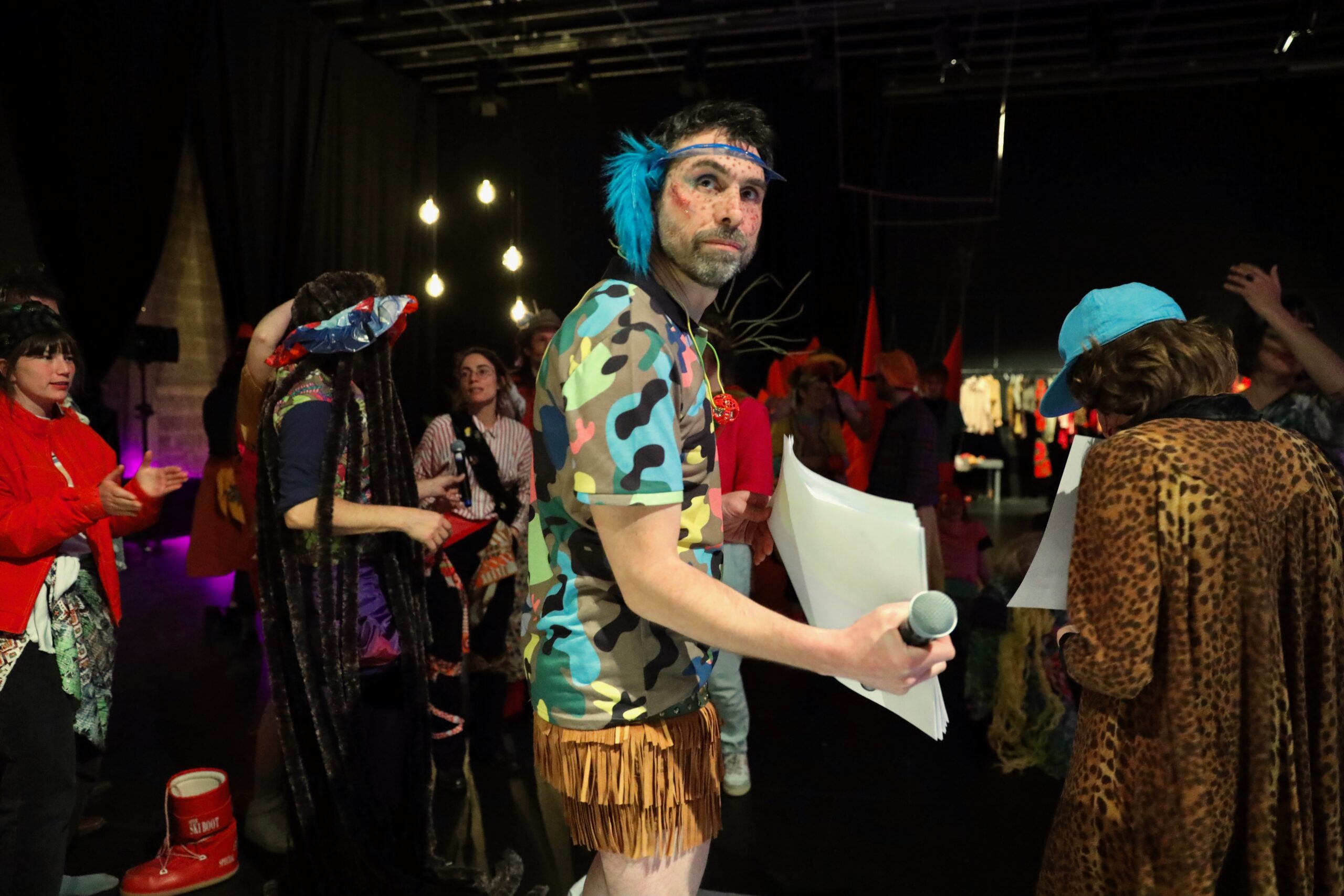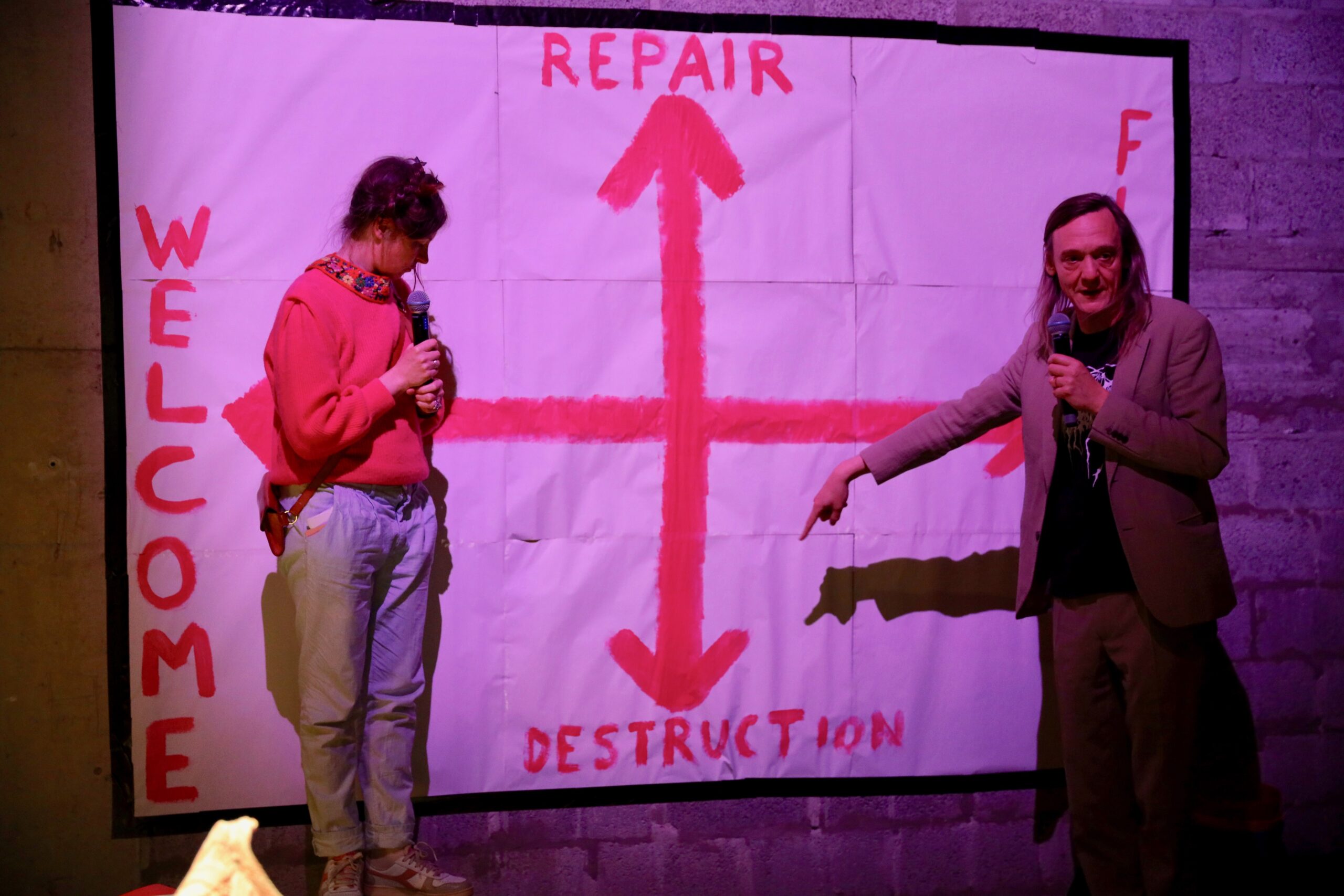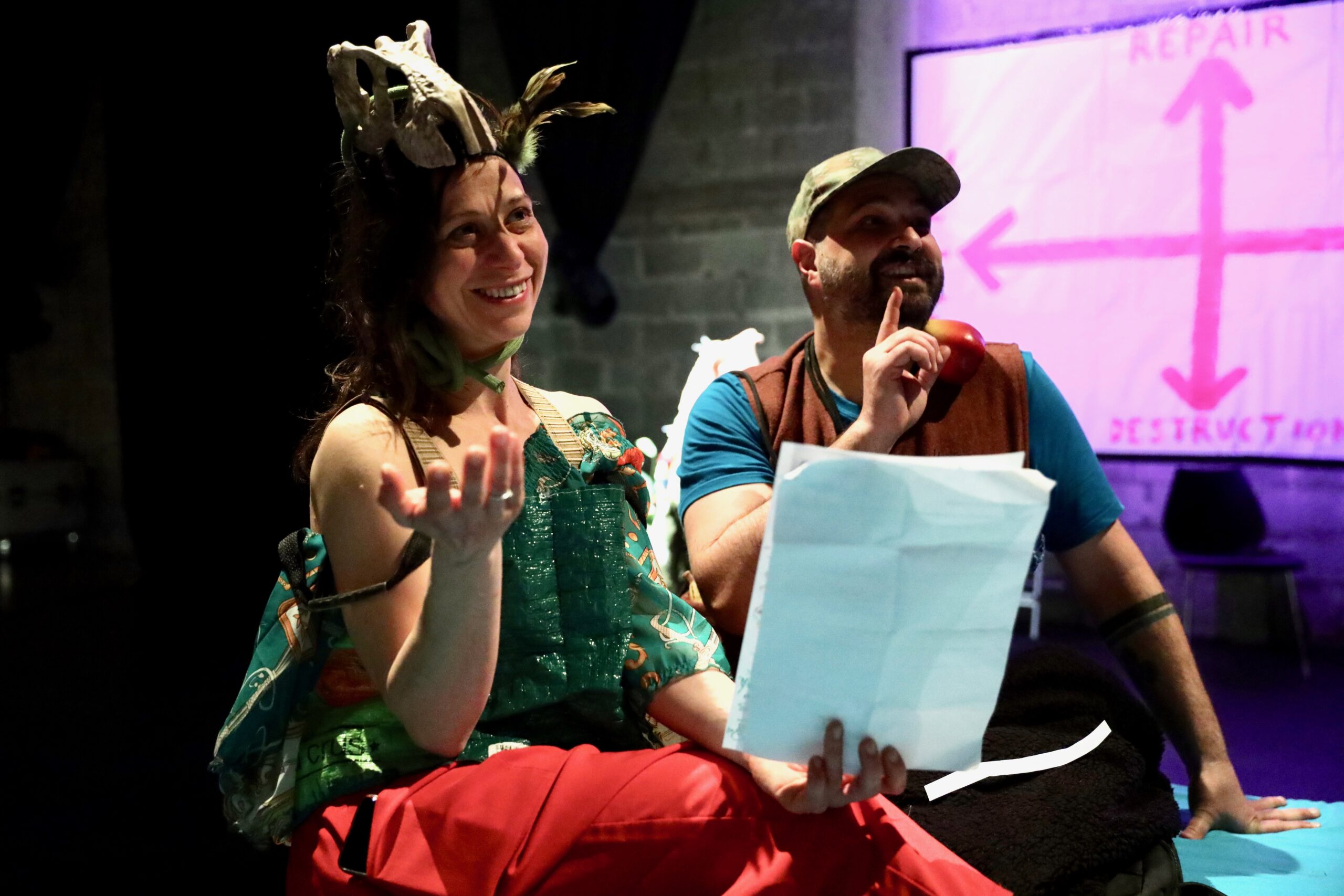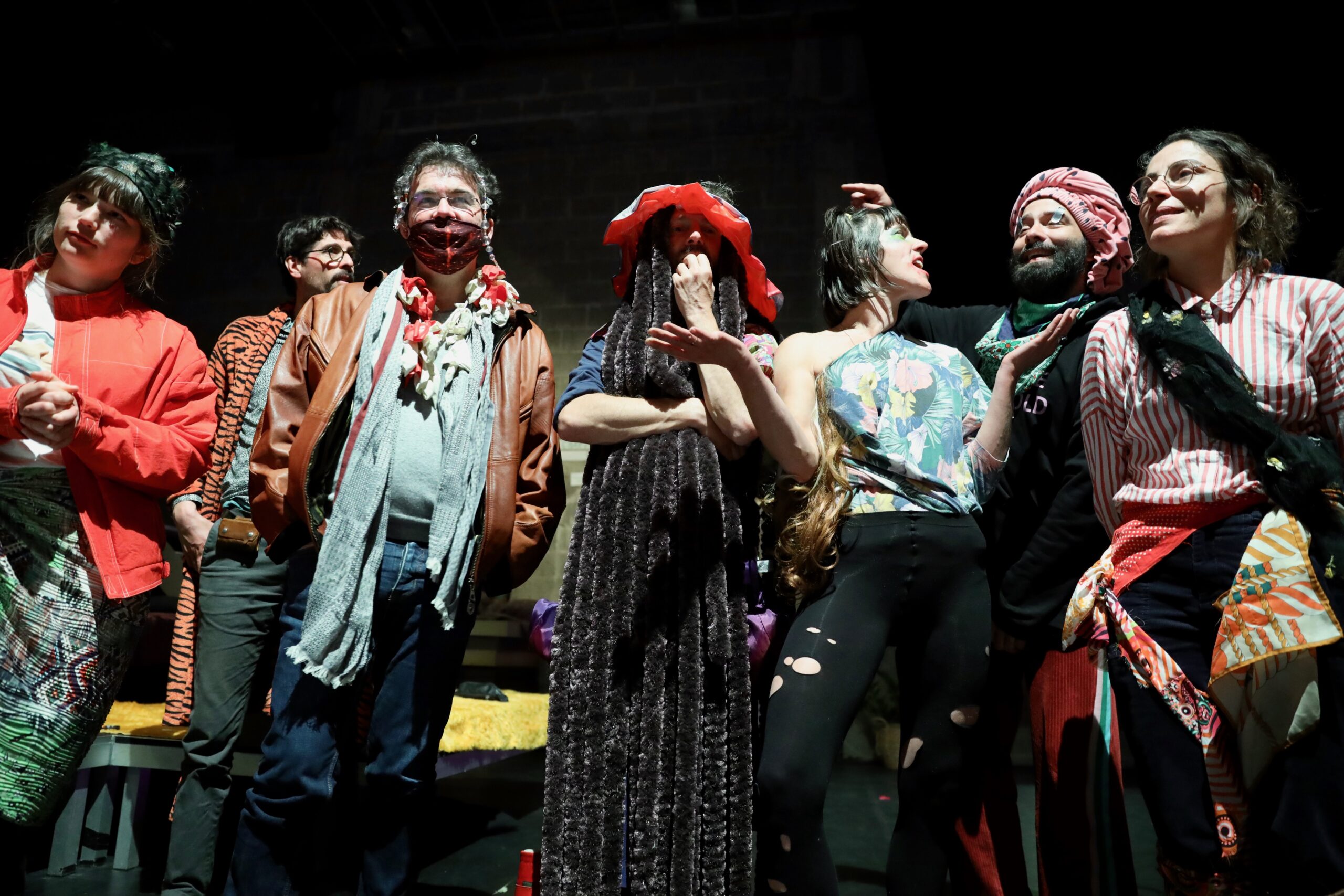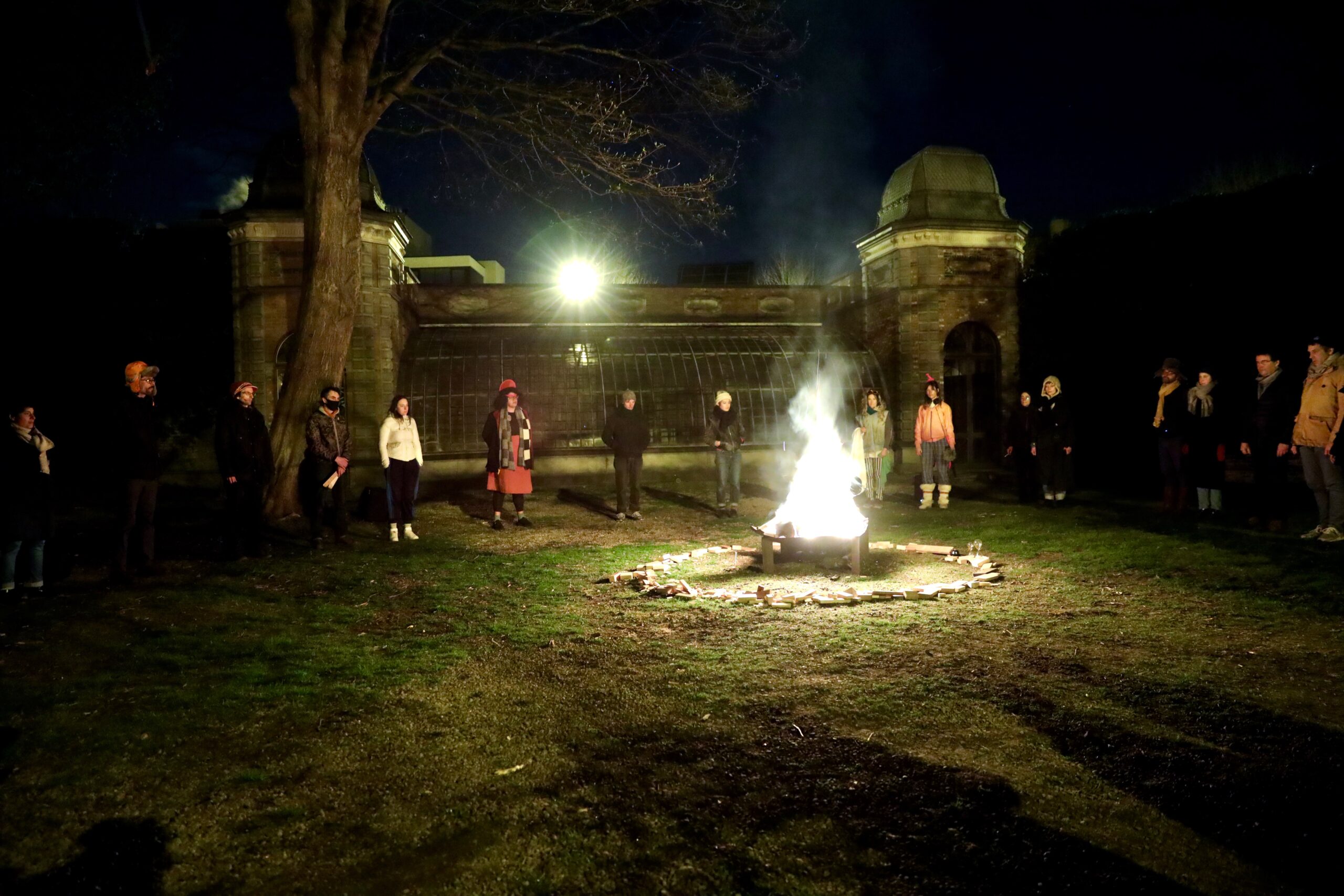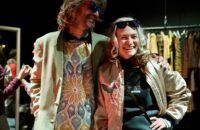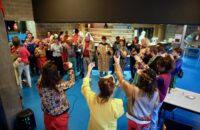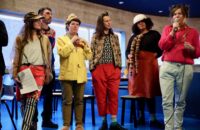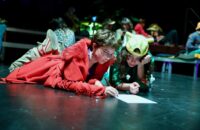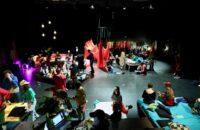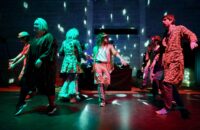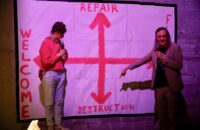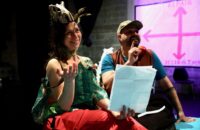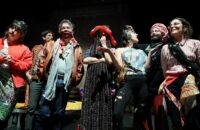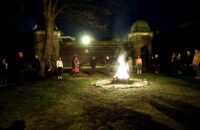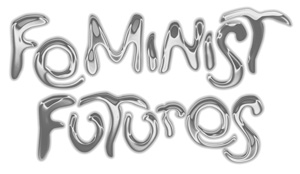The Futurology of Cooperation
“The research project ‘The Futurology of Cooperation‘ was conceived as a training camp for our imagination. We want to sharpen our competence to imagine new possibilities of collaborating, thinking and living together. By fitting out our imagination with concrete and existing tools, by inventing new ones and sharing them with others, we want to train the muscles of our speculative imagination and rediscover the plasticity of reality.”
Futurology, Futures Studies or Strategic Foresight is a craft somewhere in between art and science that tries to imagine or predict how current trends can develop into possible futures. As this craft is often practiced in the hidden back-rooms of corporate or political offices, we want to democratize the tools it uses, and turn them into an instrument of mutant cooperation and time traveling within the reach of all.
‘The Futurology of Cooperation‘ relies on co-learning and its radical inclusion ethics, and mixes the best of collective intelligence with poetic writing, somatic practices or even the occult sciences. Concretely, the research-team hacks, remixes and prototypes new methods of open-source futurology. They design game structures, exercises and other tools to collectively imagine and design possible futures, to develop and elaborate on these futures, and to actively explore them. They are convinced that in the direct, physical experience of these worlds and futures, they can discover what they have to teach us, and how they might even influence our behaviour and lifestyle. In practicing this type of open-source futurology an immersive art-form appears, somewhere at the border of group performance and experimental consultancy.
They collect existing tools and their new inventions in their ‘Grimoire’ – a spell book and living archive that can be consulted by anyone interested in experimenting with time travel in collective processes.
On 1 April, they launched a first version of their living archive and invited some like-minded people to share their thoughts and practices. On 2 April, they invited guests for a full night of experimenting together with the tools, games and exercises from their archive.
“On the evening of 1 April, they invited guests to toast to The Futurology of Cooperation.They gave a brief introduction to their research and launched a prototype version of their Grimoire , a living archive of futuristic methods, tools, games and exercises that have emerged from the research.
They invited people over for a bite before attend a lecture by Eleanor Saiitta who introduced them to the universe of Nordic Larping. LARPs (Live Action Role Play) are role-playing games like Dungeons & Dragons (imagine running around in a forest dressed as elves or gnomes). What distinguishes Nordic Larping from other LARP traditions is a strong emphasis on cooperation and collective creation, unobtrusive rules and sometimes political and activist themes and content. As part of their research, they are therefore very interested in learning more about the tools and practice of Nordic Larping, and the political and social dimensions involved.
A different perspective was offered by artist Susan Ploetz. In an artist talk she discussed how she uses principles of Nordic Larping in her artistic practice.
They closed the program withCamille & Ulysse, a film by Diana Toucedo with the philosophers Vinciane Despret and Donna Haraway. Sometime in the future, Camille & Ulysse recount the intertwined stories of the first generations of their communities of humans and non-humans, the communities of compost. Filmed as an oral tale and correspondence between the two storytellers and their fables, the film follows the communities’ ways of living and dying on a damaged planet as well as their ever expanding fluency in a new scientific field, therolinguistics, or the study of animal languages.”
TIKKUMST
In Jewish tradition, ‘Tikkun’ is an event where a community spends the night together to study. The meaning of the word Tikkun in Hebrew is Repair. The Tikkun night,with its collective learning and mystic energy, puts into practice the belief that it is through study that we can transform the world. Inspired by this tradition, they invited guests to TIKKUMST, a celebration and closing meeting after three years of research by The Futurology of Cooperation.
From sunset to sunrise, they experienced together several of the methods, games and exercises they had learned or invented along the way. Through several chapters, they proposed possible futures together, explored and developed them in order to sharpen our image of those futures, and last but not least, they time-travelled and tried to experience those futures in experimental settings. They went for walks, there were rituals and time to lie down, they could dress up, sing and dance… There were one-on-one conversations, tarot readings, collective fables… At the end of the night, a breakfast awaited them, guaranteeing a safe return to the present, and a full stomach to conclude this collective experience.
TIKKUMST is not a performance you attend, but an invitation to a playful and participative event initiating you in the practice of futuring. Everyone was encouraged to stay all night.
Eleanor Saitta (FI/US/UK) is an independent architecture and strategy consultant in security and privacy with clients in media, finance, healthcare, infrastructure and software in the US and Europe. Eleanor Saitta is also a hacker, designer, artist, writer, and barbarian.
She makes a living and a vocation of understanding how complex systems and stories operate and redesigning them to work, or at least fail, better. Her work is transdisciplinary, using everything from electronics, software, and paint to social rules and words as media with which to explore and shape our interactions with the world. Her focuses include the integration of technology into the lived experience, the humanity of objects and the built environment, and systemic resilience and conviviality.
Susan Ploetz (US/DE) is an artist-researcher working with somatics, theory, writing, performance, simulation and live action role-playing (larping) in various configurations. Her work deals with the overlapping spaces of soma and technos; she uses imagination, magical materiality and protocol to bring about emancipatory emotional dissonance and perceptual expansion. She explores body-based game design and narrative play as co-creative world creation that develops individual agency within spontaneous, ephemeral, decentralised communities.
Diana Toucedo (ES) is a filmmaker and film editor living in Barcelona. She holds a Bachelor’s degree in Cinema and Video Editing from the University of Barcelona/ESCAC, a Master’s degree in Contemporary Film Theory from Pompeu Fabra University and is pursuing a PhD in Communication.
She is born through the clear vision of producing cultivating artistic freedom of young filmmakers who explore and experiment with cinematic language and other contemporary audiovisual forms. Her experience with editing, teaching and film making lead her to take risks and go one step further. Always researching new forms of production, she seeks to create an international author film brand in the documentary / non-fiction maintaining a commercial sensibility.
Play dates
The research-team: Anna Czapski, Diederik Peeters, Mathilde Maillard, Adva Zakaï, Hans Bryssinck, Rasa Alksnyte, Heike Langsdorf, Marine Thévenet, Anna Rispoli, Emmanuelle Wattier et Martin Boutry, Pierre Huyghebaert en Sarah Magnan (Open Source Publishing), – with the precious help and motivation of Maja Kuzmanovic, Siti Nurjanah, Vincent Lebour – and special thanks to all the students at KASK, P.A.R.T.S. and ESA Saint-Luc Bruxelles
Anna Czapski & Diederik Peeters are affiliated as artistic researchers to KASK & Conservatorium, the School of Arts van HOGENT and Howest. The research project The Futurology of Cooperation is funded by HOGENT Arts Research Fund, with the support of the transborder cooperation fund Région Hauts-de-France & Vlaamse Gemeenschap via L’Amicale & SPIN.
Programme curation by Erika Sprey
Producer: Rocio Leza
Costumes: Moni Wespi
Scenography: Laura Oriol
Photography: Ernst Maréchal





